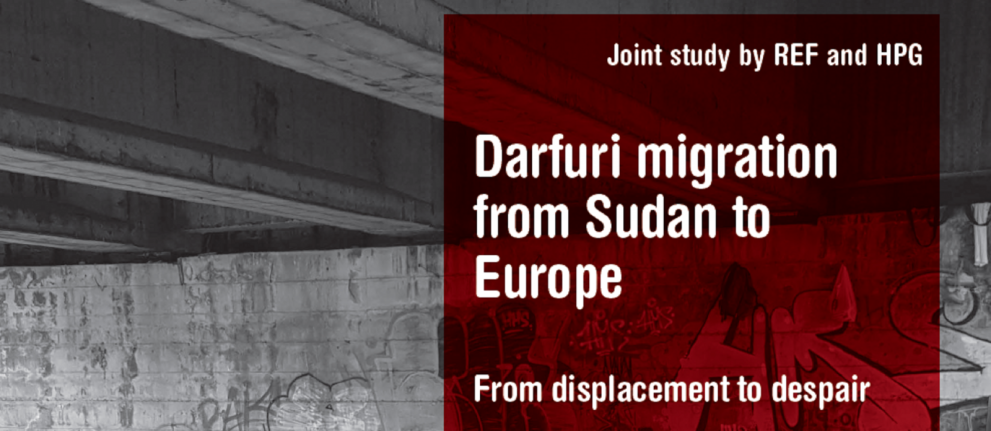
While much attention has been paid to Sudan as a transit country for Africans trying to reach Europe, little attention has been paid to Sudanese trying to reach Europe. Yet the Sudanese were the fifth, sixth and seventh largest categories of migrants and refugees arriving in Italy in 2015, 2016 and 2017 respectively.
This study documents for the first time the experiences of young Darfuris, mainly men, fleeing Sudan for Europe. It is one of the very few research studies that have looked at the whole process of migration for a particular population group – ethnic Darfuris – from their place of origin to their final destination, and from a systemic perspective.
It takes account of historical patterns of migration and the political and economic context in Sudan and Darfur to understand the causes of migration, the journeys that Darfuris make and their experiences along the journey and at their destination, as well as the many influences on migration strategies and decision-making. The study also explores the impact of migration to Europe on families and communities left behind, and on the wider political economy of Darfur.
The findings of this study provide an opportunity to ensure that policy discussions and decisions on migration from Sudan as a country of origin (as opposed to a transit country) are based on evidence – in other words, based on what we know about who is leaving and why, and their experiences en route.
The findings lead to four sets of policy recommendations aimed at different aspects of the migration process.
Read the recommendations in the full report:
Research and Evidence Facility (REF) study on Darfuri migration from Sudan to Europe
Research and Evidence Facility (REF) study on Darfuri migration from Sudan to Europe (Summary)
About the Reserach and Evidence Facility (REF)
Supported by the EU Trust Fund, the Research and Evidence Facility (REF) has been created to collate and produce evidence and policy relevant knowledge. Such knowledge is expected to include (but not be limited to) information on the drivers of migration, dynamics of cross-border economies and centre/periphery relations, the features and limitations of government migration management systems and social service provision, drivers of radicalism and violent extremism, and opportunities for strengthening resilience. These topics have been relevant in recent years, but have gained in significance to EU member states with the increase and acceleration of migration from several regions, including the Horn of Africa, into the European Union. The research is conducted by a consortium made up of SOAS as the lead partner, the University of Oxford’s International Migration Institute (Oxford/IMI) and Sahan Research (based in Nairobi, Kenya).
Note on the publication
This publication was produced with financial support of the European Union Emergency Trust Fund (EUTF) for the Horn of Africa and the Netherlands Ministry of Foreign Affairs (Stabilisation and Humanitarian Aid Department). Its contents are the sole responsibility of the authors and do not necessarily reflect the views of the European Union or the Royal Netherlands Ministry of Foreign Affairs.
Details
- Publication date
- 11 September 2018
